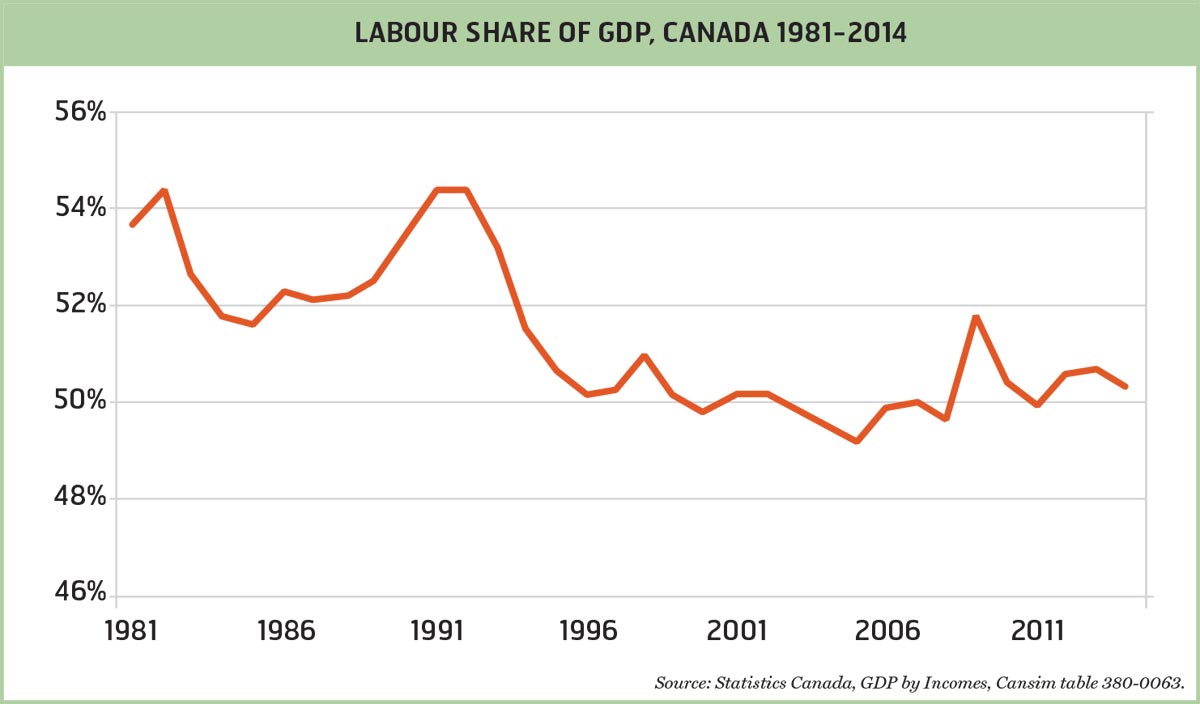
This isn’t just a Canadian, American or industrialized country phenomenon: labour’s share of income—in the form of wages, salaries and other income—has been falling across the world.
In the post-war period labour’s share of national income was so steady, some considered it a constant. Then along came Thatcher, Reagan and neo-liberal economic policies aimed at reducing public spending, tax cuts for corporations, deregulation, and more.
Since that time, despite more investment by workers in education and increasing employment rates, labour’s share of income has trended downward while the share of corporate profits has increased.
There have been some upward blips during recessions, but that’s because corporate profits have declined, not because of rising wages. Labour’s low share is holding back economic growth because it has reduced demand.
How can we increase labour’s share of the economic pie? There are a number of ways, including hiking minimum wages, strengthening labour standards, creating more jobs, and increasing the bargaining power of workers. One thing’s certain: further squeezing and freezing workers’ pay, as a number of provincial governments are doing again, will only make the situation worse.


